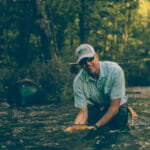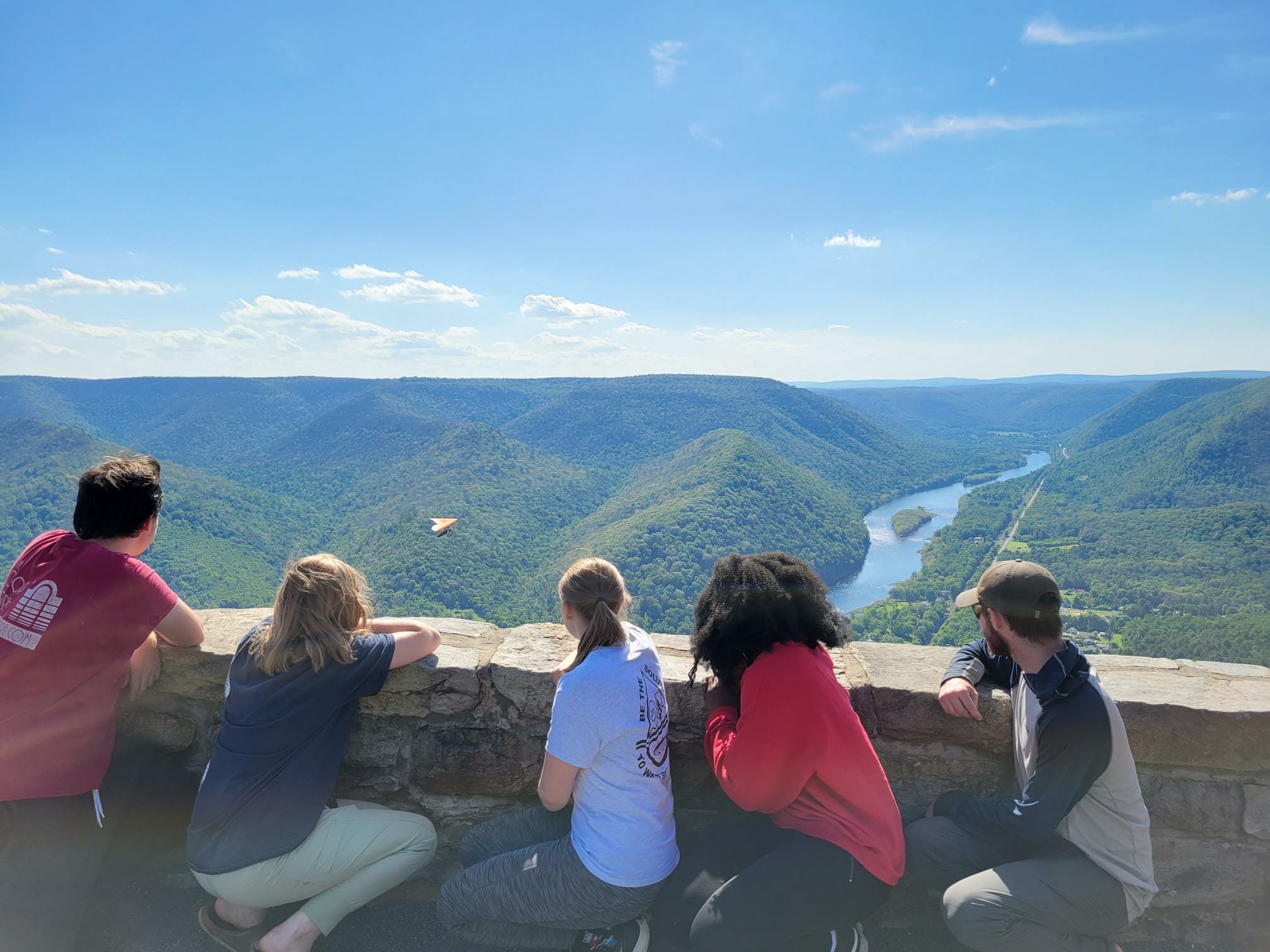As summer arrives, Trout Unlimited’s ranks swell as interns join the organization to gain valuable experience in conservation field work and advocacy.
The dozens of interns come from near and far. In the case of one intern in Pennsylvania, really far.
Sofia Odoemena is from Nigeria.
A student at Lycoming College in Williamsport, Pa., Odoemena spent the summer trekking around the wilds of the Keystone State with TU field staffers Kathleen Lavelle and Allison Lutz.
She is the first international student to intern for the Northeast Coldwater Habitat Program, overseen by Amy Wolfe and based in Lock Haven.
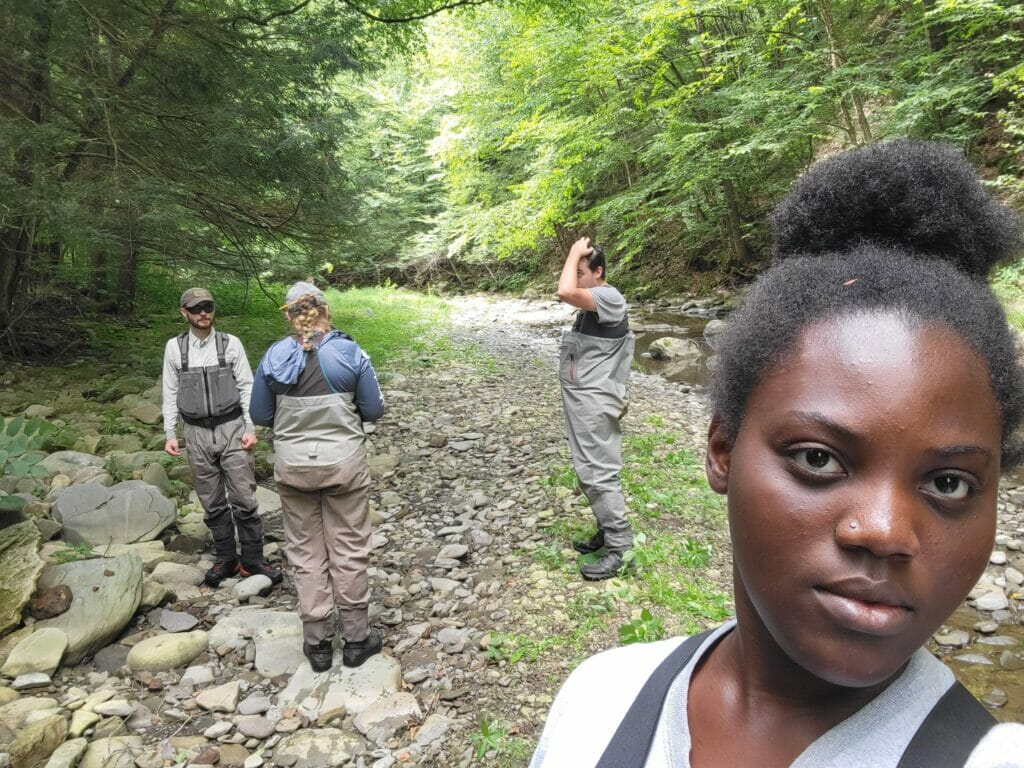
Odoemena, a biology major, said she learned of the opportunity from an advisor, Dr. Melvin Zimmerman, who directs the Clean Water Institute at Lycoming College and for many years has partnered with Pennsylvania watershed groups.
The crew also included Field Crew Leader Ivie Foster and interns Kaleb Keech, a recent graduate of Indiana University of Pennsylvania, Amber Pentycofe of Lycoming College, and Evan Buck of Penn State University.
They worked on important tasks such as surveying road stream crossings to check on possible barriers to fish passage. But Odoemena said she most enjoyed the days spent electrofishing streams to check on fish populations, including working on TU’s long partnership with the Pennsylvania Fish and Boat Commission’s Unassessed Waters Initiative.
Not only did she get to net fish and help with the protocol of measuring and recording the catches, but Odoemena also became certified to wear the electrofishing backpack.
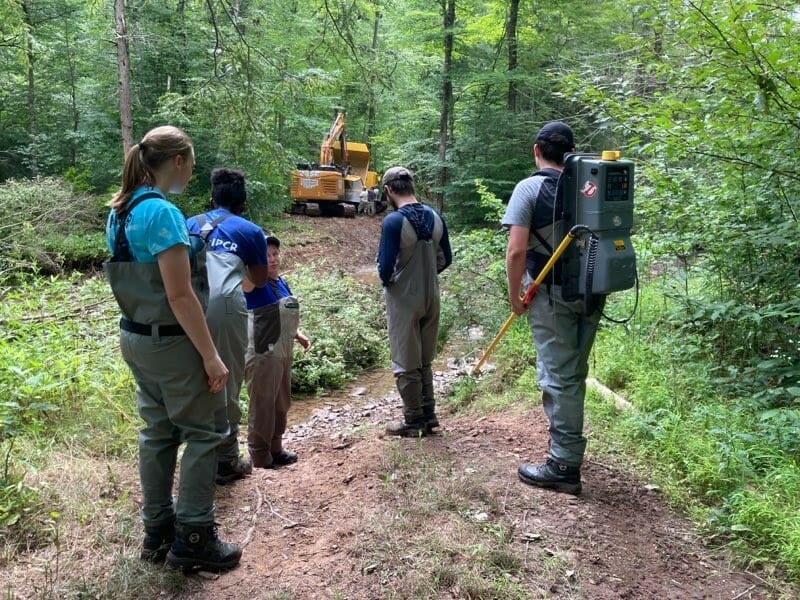
“I loved it,” she said. “Everyone wanted to find fish and when we found brown, rainbow and brook trout, that was really fun.”
Not that there weren’t some incidents.
“I fell down in the water,” she said. “Everyone falls down. I think the only one on our team who didn’t fall down all summer was Allison.”
Odoemena first started considering going to college in the United States when she was in her early teens.
“I told my dad and he said, ‘I don’t know if I want you to go that far away,’” she admitted.
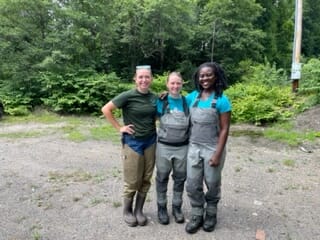
Odoemena persisted and, with assistance through a program called Education USA, she made the connection to Lycoming College, a 1,200-student school founded in 1812 and one of the 50 oldest colleges in the country.
The first trip to the U.S. was smooth, and Odoemena found comfort in her mother, who traveled with her to get her settled.
Not long after she arrived, things became unsettled due to the pandemic.
“When Covid hit, I was like, ‘Oh no, I can’t go back home,” she said.
But she quickly fell in love with the school and never looked back.
The unique internship was made better by the friends she made — the kinds of friendships that develop when you’re knocking around steamy summertime woods battling ticks, mosquitos, stinging nettles and slippery creek rocks.
“There was never a time I felt alone,” said Odoemena. “My supervisors were always helping and ready to explain anything.
“I’m going to miss everyone.”
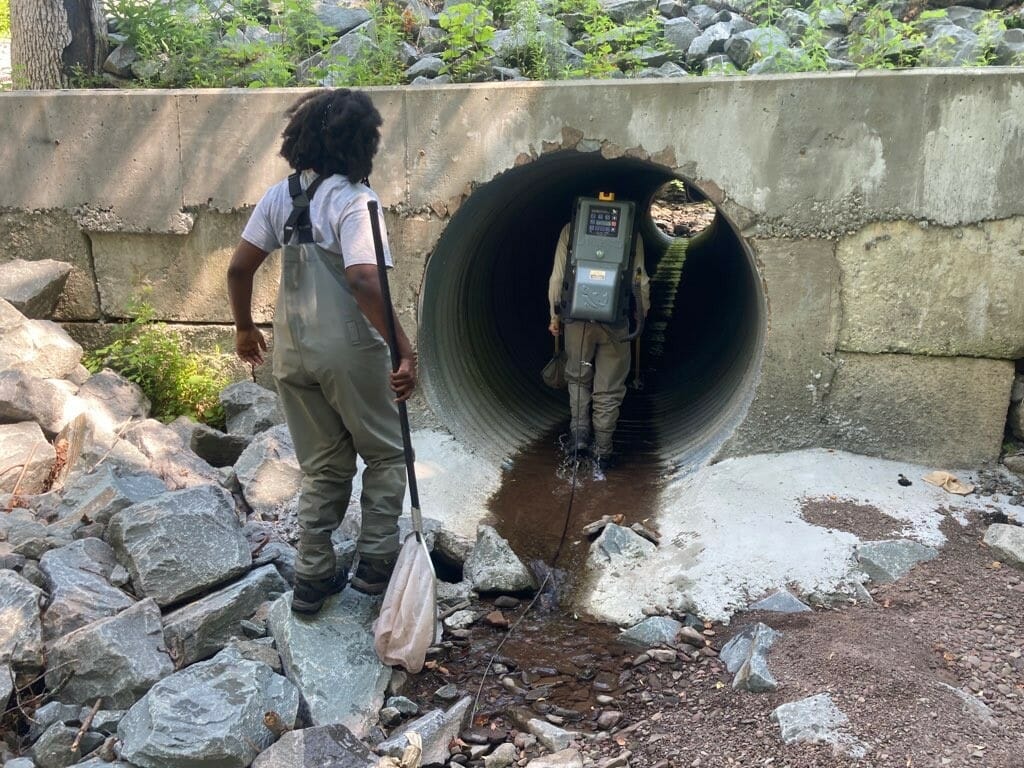
Another thing she’ll miss? Free food. While in the field staff employees get a small stipend to cover meals. Odoemena at first needed a little help when ordering.
“When we were traveling, if we were ordering takeout Sofia would sometimes look at Amber for clarification on things,” Lavelle said. “She would ask ‘Red sauce?’ Amber would shake her head and say, ‘No, you want hot sauce.’
“That got a little easier because Sofia always wanted hot sauce — on everything.”
Lavelle said the perfect word to describe Odoemena was “delightful.”
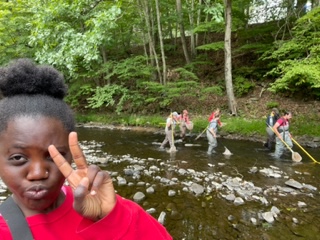
“One of the most meaningful things she said when we were talking about her time with TU was that she ‘learned a lot about herself,’” Lavelle said. “That really made me feel like we are doing more than fish surveys out there.”
That said, there’s a chance she’ll stay connected with TU. The internship inspired her to consider fisheries and conservation as a future career.
After earning her undergraduate degree, Odoemena said she’ll probably attend grad school with an ambitious goal.
“I want to learn more about the environment,” she said. “And I want to learn more about me.”
Evan Buck, Penn State University
Working with Trout Unlimited this summer was an incredibly fun and invaluable experience that gave me my first real world experience in the field of fisheries biology.
We worked on a variety of projects throughout the course of my time with TU, including: fish habitat surveys; abandoned mine drainage monitoring; post habitat construction analysis; and the Pennsylvania Unassessed Waters Initiative.
The abandoned mine drainage projects were my favorite because the simplicity of mine drainage treatment systems is ingenious and blew my mind. Part of this work involves pinpointing where drainage may be entering a watershed and the effects that it causes.
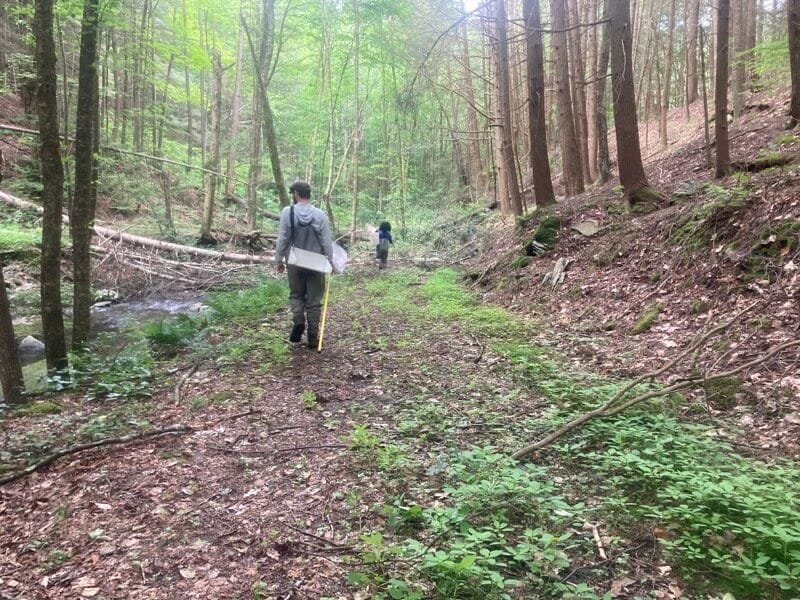
This work was particularly gratifying because the improvements to mine drainage on watersheds are reflected almost instantly in water quality and fish populations. It is a great way to inspire hope that you are in fact making a difference.
The unassessed waters program was the project that we worked on the most over the summer, and had many highs and lows associated with it.
The unassessed waters program aims to identify undocumented populations of wild trout in Pennsylvania so that their streams can earn a higher level of protection from lumber, mining, natural gas permits, and industry.
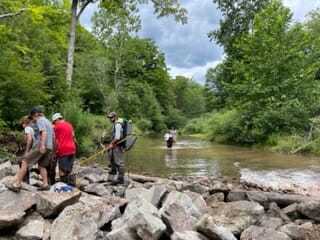
This project allowed me to see many parts of Pennsylvania that I otherwise would have written off because I had no reason to go there. There is a lot of unknown beauty in PA. The most challenging part was traveling away from home frequently and gaining landowner permission to access streams since many of them were on private property. Responses to asking permission ranged from quite hostile to incredibly welcoming, and extended periods of rejection turned into quite the patience test.
Overall, my time with Trout Unlimited was very fun and enlightening; I now feel like I am equipped with the skills needed to be proficient in the fisheries science field and I also feel like a stronger candidate on my graduate school applications. I hope to stay involved with TU through volunteer opportunities.
Amber Pentycofe, Lycoming College
This summer I interned with Trout Unlimited to further my interests in biological research and how that research can be used to help the environment.
I did many different things this summer including habitat monitoring, fisheries surveys, unassessed waters, and culvert assessments.
While conducting habitat monitoring, we collect data that is used to get a baseline of what the area looked like preconstruction, as well as, using fisheries surveys to identify the species of fish that live in the stream and their abundance. We specifically target the trout population by weighing and measuring their lengths.
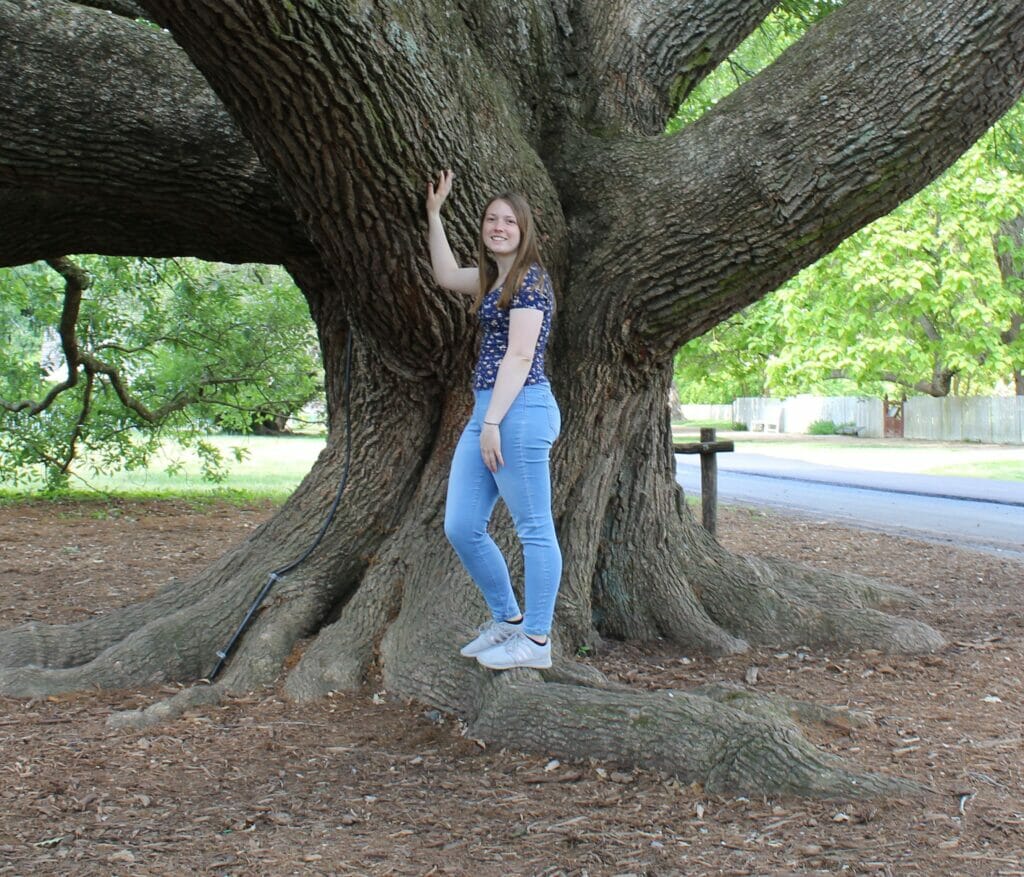
Habitat monitoring is also conducted after improvements are made to the habitat of the stream to find out if the population of trout and other fish increased.
The Unassessed Waters Initiative is something we worked a lot on this summer. For this we did fisheries surveys in streams that have not been identified as having trout in them. It is an ongoing program to classify the streams that contain wild trout populations so that they can be protected.
This summer I also got to conduct culvert assessments in which we would take measurements of culverts to find out if the structure was adequate in stream connectivity and if fish can easily pass through it.

Overall, I learned many different things during my internship and made good memories.
One memory was us trying to find a stream while walking through a swamp and getting stuck in the mud, laughing about being stuck, then eventually falling in.
Some highs of the summer included looking for hellbenders under rocks, seeing beautiful views of the mountains, and driving to new places I haven’t been.
Lows included slipping on rocks and falling in the stream or walking in the woods looking for a stream only to find that it was dry or never actually finding it. But that was part of the adventure.


